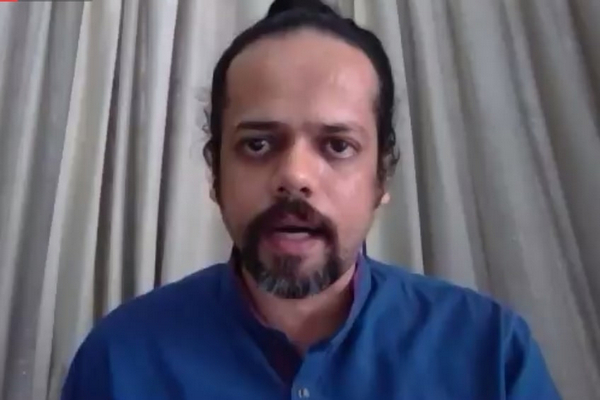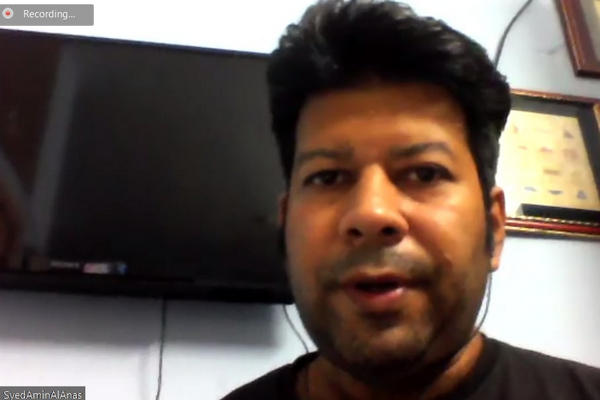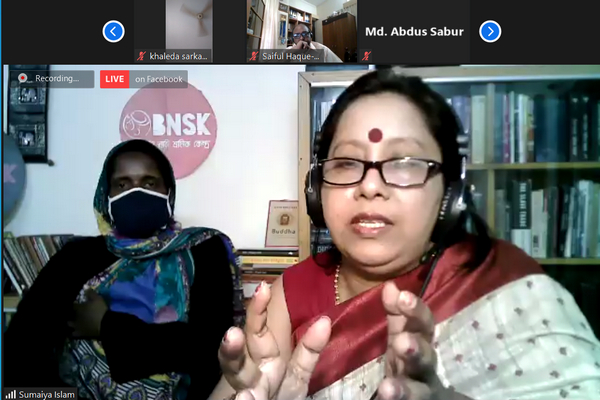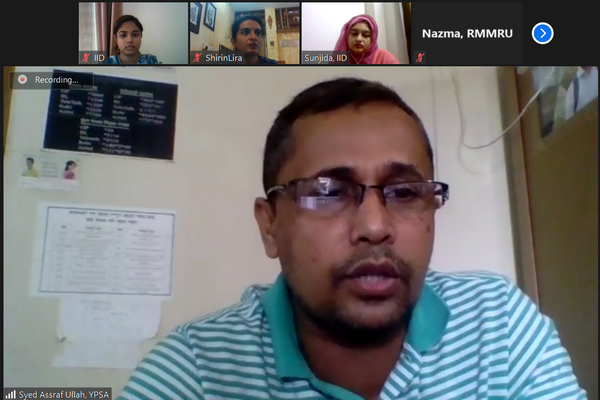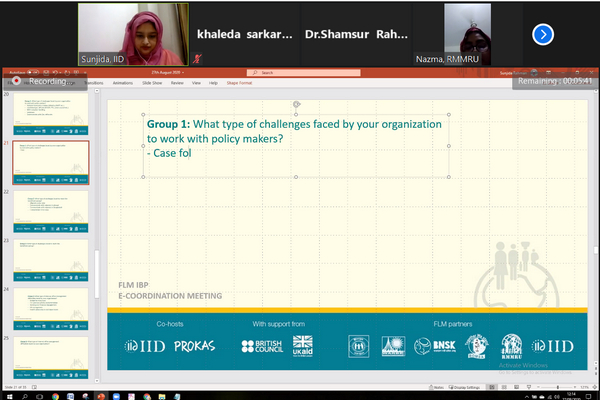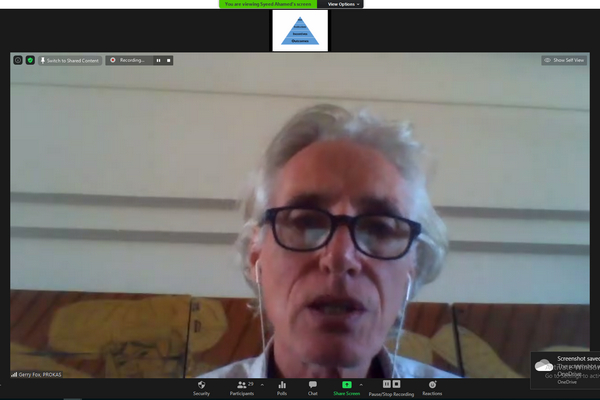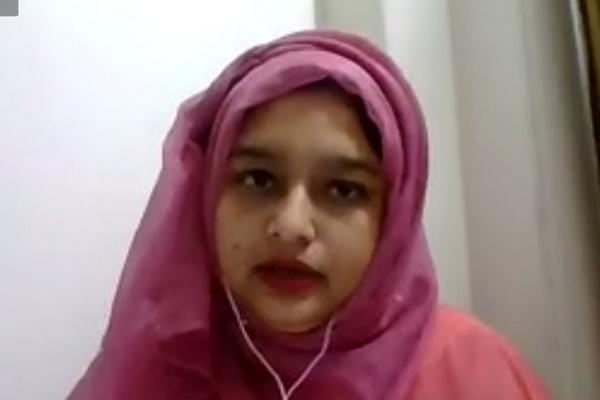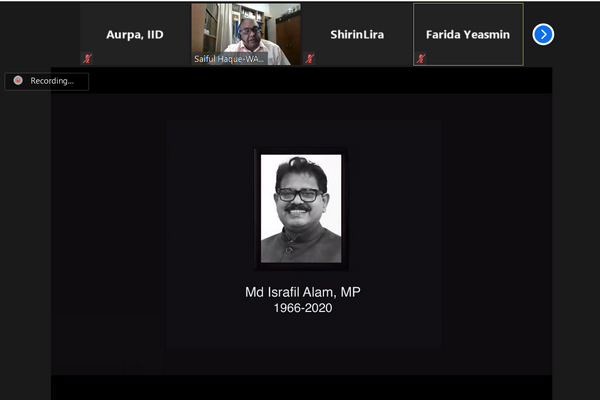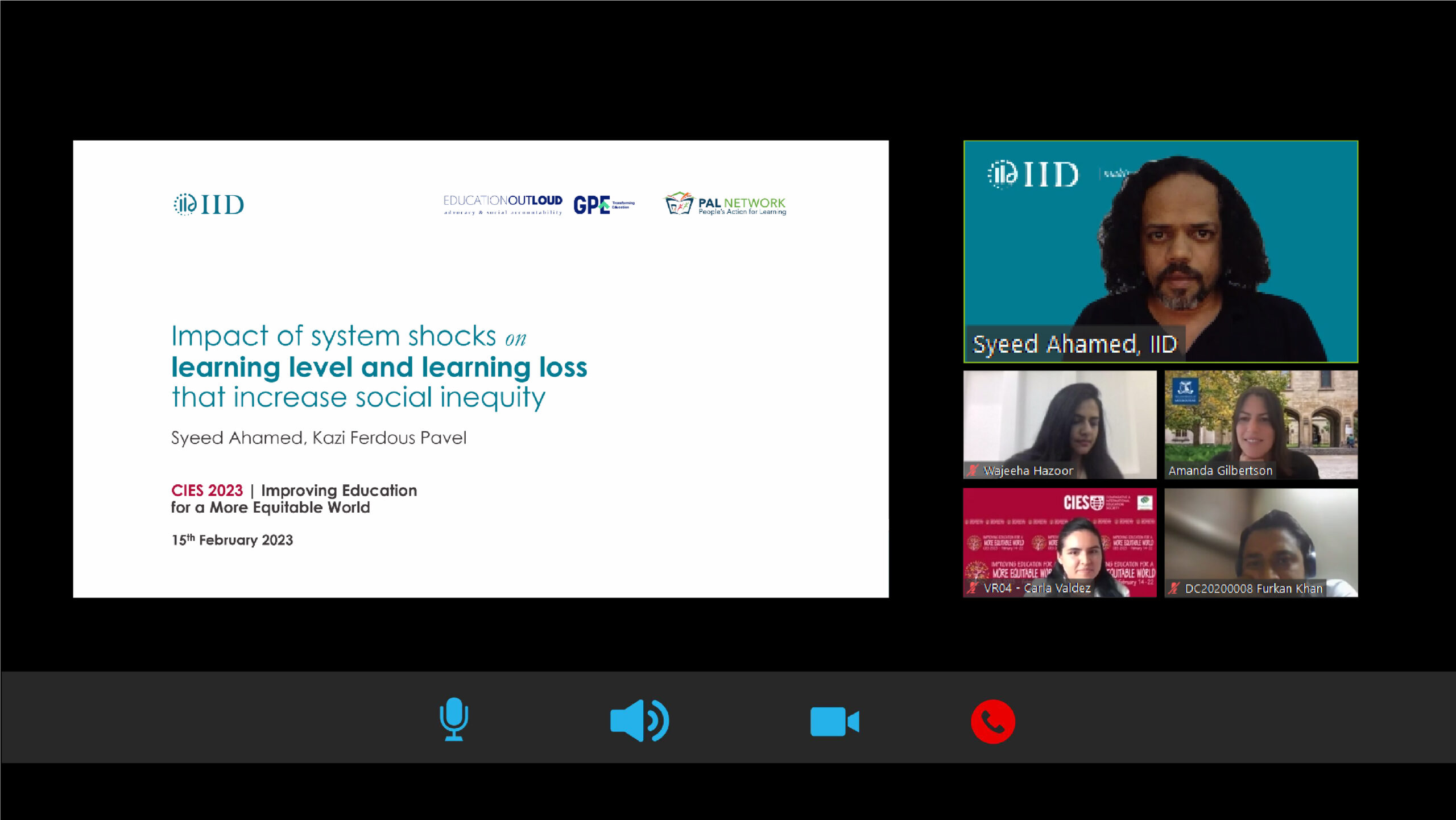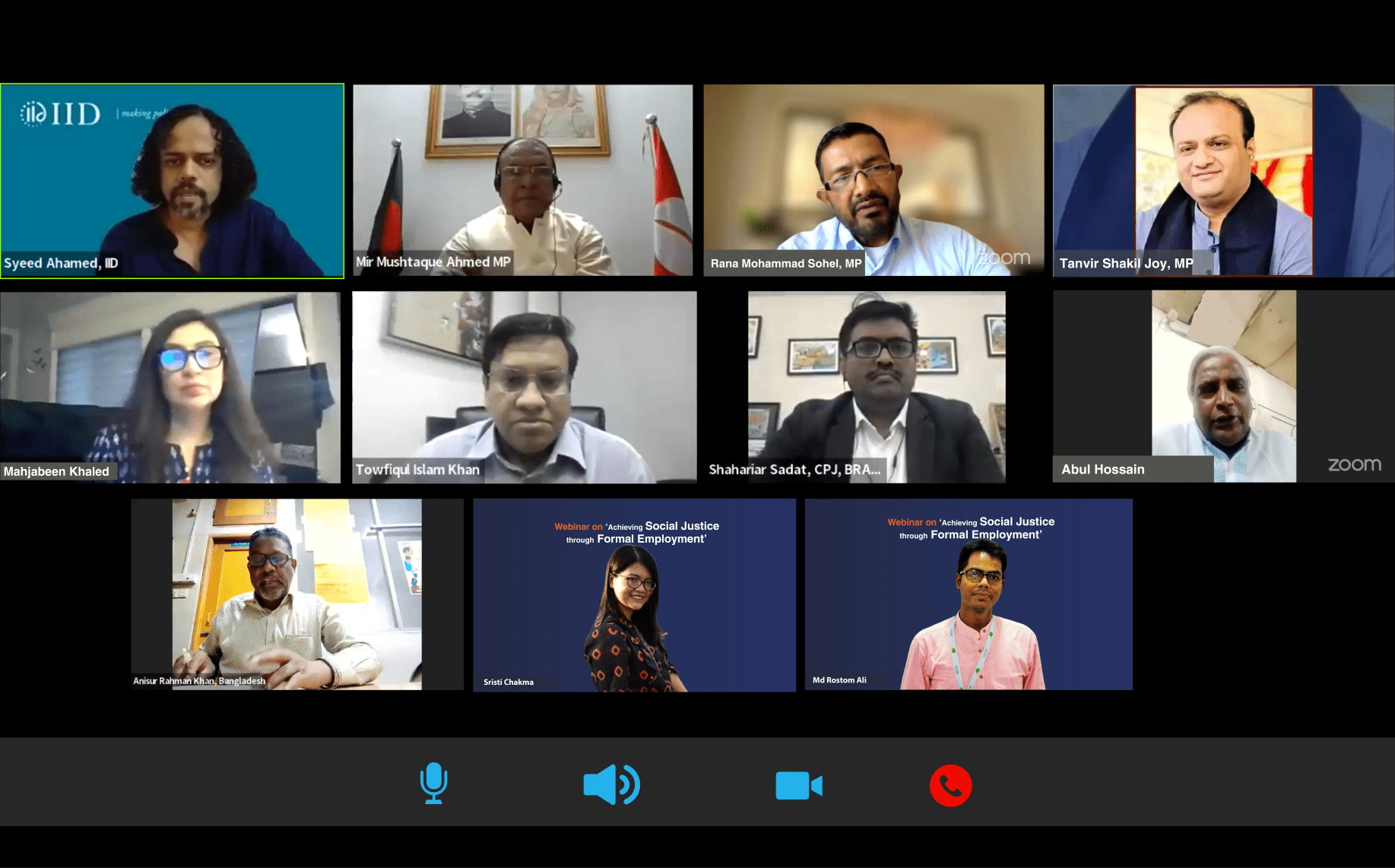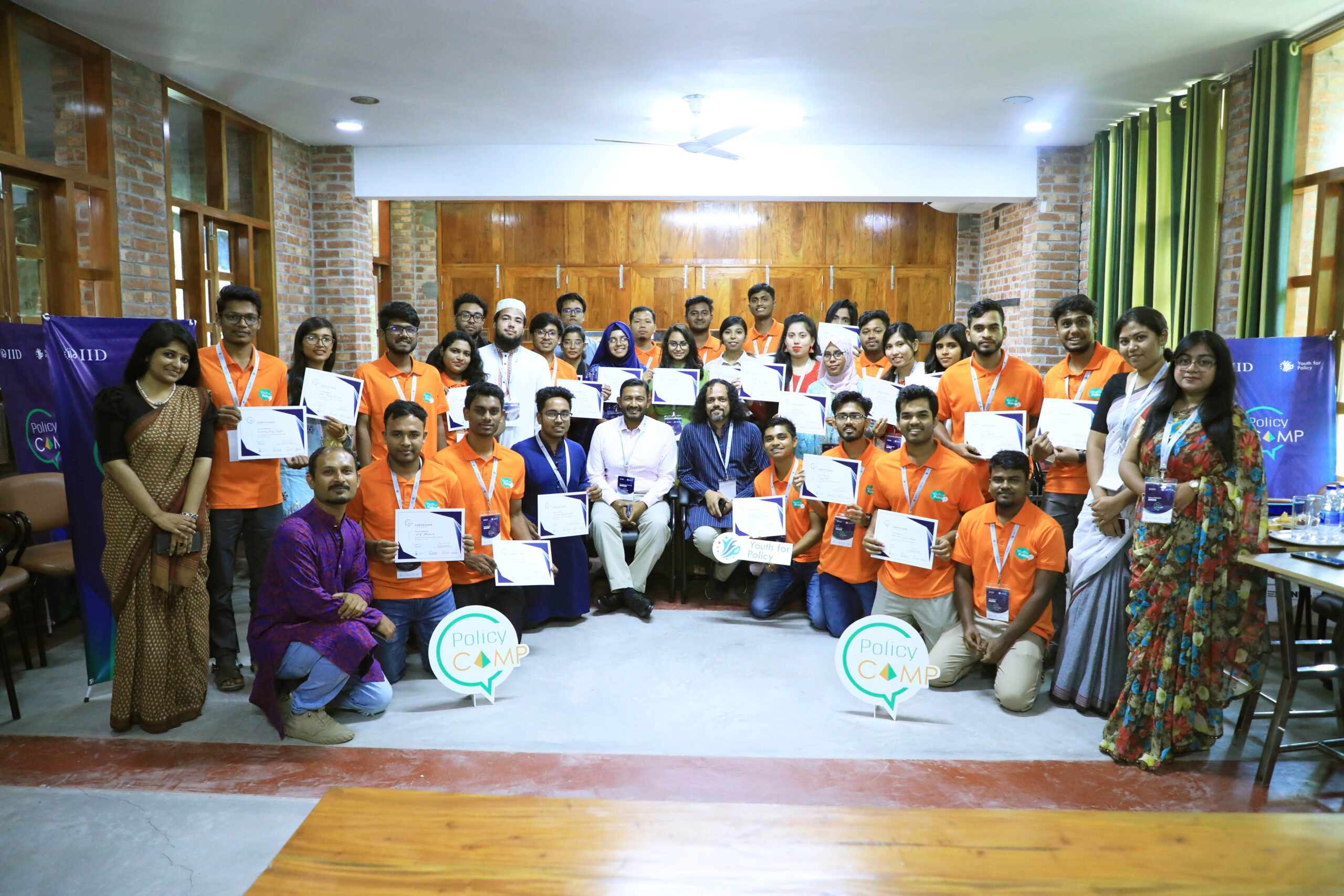COVID-19 pandemic brought significant changes to the migration sector, the PROKAS Project is no exception to that. It had to radically shift its focus to address the immediate needs of our beneficiaries. However, changes in strategic level can ensure contribution to policy advocacy in non-traditional ways.
These issues were raised on the two parts ‘FLM e-Coordination Meeting’ among IBP (Issue Based Project) partners of the PROKAS project, organised by IID. The first part of the FLM (Fairer Labour Migration) meeting, held on 27th August, incorporated a panel discussion, updates on the PROKAS project and a parallel group discussion session, while the second part consisted of a plenary session on 7th September, 2020.
Shirin Lira, as the facilitator of the panel discussion session, delivered welcome notes and objectives of the event. The discussion session on pivoting in a pandemic, hosted panelist from the organizations working on Fairer Labour Migration which included Sumaiya Islam from BNSK, Syeed Ahamed from IID, Syed Saiful Haque from WARBE, Lily Jahan from BOMSA and Mr. Arifur Rahman from YPSA. The panel discussion was broadcast live from IID’s Facebook page.
The panelists discussed the major impacts of the pandemic on migration and how that affected the institutional focus. The pandemic exposed labour migrants to more vulnerabilities than before. While migrants in the host countries suffered from lack of food and support, those who came back after losing their jobs risked stigmatisation in their own county. Studies have found that female migrant domestic workers were having heavier workload during the lockdown. At the same time, security of the returnee female migrants was threatened while locals forced them to stay isolated.
The panellists also highlighted the challenges they faced as an organization implementing activities during the lockdown and what strategist has been taken to address these challenges. They mentioned although, ‘work from home’ added setbacks to activities that needed face-to-face communication between team members, new opportunities opened up while adapting to the new normal.
After the fruitful panel discussion session, participants shared their achievements, challenges and learning with FLM partners. The participants were then assigned to 3 parallel group discussion sessions. Each group focused on separate but crucial agendas which are challenges faced in working with policy makers, challenges in reaching the beneficiary group and difficulties in internal office management.
The first group expressed their concern with the government (BMET, DEMO) and non-government (recruiting agencies) agencies shutting down and the accumulation of services that piled up upon reopening caused challenges to work with policy makers. The second group however, vocalized their challenges in reaching the beneficiary group due to stigmatisation of migrants, while the other group cited budget cuts and shift in activities to be a major challenge in internal office management. At the end of the discussion each group presented their findings.
The second part of the e-coordination meeting began with the plenary session in which Gerry Fox, Team Lead of PROKAS, presented an overview of power dynamics and the Political Economy context of Bangladesh during the pandemic. Participants of the meeting were divided in groups based on different issues. They reviewed & updated the power map and analysed incentives that will encourage actors to engage in activities that will lead to positive outcome and short term benefits for actors that support a shift in institutions and ideas. The group work was followed by another plenary discussion where the groups presented their analysis.
Representatives from the PROKAS team and each of the Fairer Labour Migration (FLM) partners attended the event.
Participants of the event conveyed tribute the life and work of Md Israfil Alam, MP, Chairman of the Parliamentary Caucus on Migration and Development and mourned his recent passing away. Md Israfil Alam has been a crucial part of FLM.


